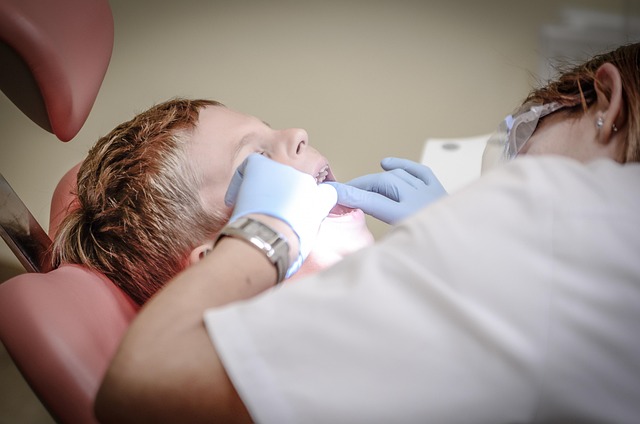Transform Your Smile: The Future of Dental Implants is Here
Dental implants have revolutionized tooth replacement, offering a permanent solution that looks, feels, and functions like natural teeth. With advancing technology and improved materials, modern implants provide unprecedented success rates and patient satisfaction. Understanding the latest developments in implant dentistry can help you make informed decisions about restoring your smile and oral health.

The landscape of tooth replacement has undergone a remarkable transformation over the past decade. Advanced materials, refined surgical techniques, and innovative design approaches have made dental implants more effective and accessible than ever before. These developments represent a significant leap forward in restorative dentistry, offering patients solutions that were previously unimaginable.
What Are Modern Dental Implants?
Modern dental implants consist of three primary components: a titanium post that serves as an artificial tooth root, an abutment that connects the post to the crown, and a custom-designed crown that matches your natural teeth. Today’s implants utilize biocompatible titanium alloys that integrate seamlessly with jawbone tissue through a process called osseointegration. Advanced surface treatments and micro-texturing enhance this integration, leading to stronger, more durable results. Contemporary implant designs also feature improved thread patterns and collar configurations that distribute forces more evenly and reduce the risk of complications.
Why Patients Are Choosing Implants Over Other Options
Patients increasingly prefer implants over traditional dentures or bridges for several compelling reasons. Unlike removable dentures, implants remain securely in place, eliminating concerns about slipping or clicking sounds during speech or eating. They also preserve jawbone density by providing the stimulation that natural tooth roots once provided, preventing the facial collapse often associated with tooth loss. Additionally, implants don’t require modification of adjacent healthy teeth, as traditional bridges do, preserving overall oral health. The psychological benefits are equally significant, as patients report increased confidence and improved quality of life when they can eat, speak, and smile without restrictions.
How Modern Implant Technology Works
Contemporary implant procedures leverage cutting-edge technology to ensure precision and predictability. Computer-guided surgery uses 3D imaging and specialized software to plan implant placement with millimeter accuracy, reducing surgical time and improving outcomes. Digital impressions eliminate the need for messy traditional molds, while CAD/CAM technology creates perfectly fitted crowns in a fraction of the time previously required. Some practices now offer same-day implants, where the implant and temporary crown are placed in a single appointment. Advanced materials like zirconia implants provide metal-free alternatives for patients with specific aesthetic or biocompatibility concerns.
Who Can Benefit from Dental Implants?
Most adults with missing teeth are candidates for implants, though individual factors determine suitability. Ideal candidates have adequate jawbone density, healthy gums, and good overall health. Age is rarely a limiting factor, as implants have been successfully placed in patients from their twenties to their nineties. Certain medical conditions like uncontrolled diabetes or active periodontal disease may require treatment before implant placement. Smokers face higher failure rates and longer healing times, though many can still receive implants with proper precautions. Recent advances have expanded eligibility to include patients who previously weren’t candidates, such as those with insufficient bone volume who can now benefit from bone grafting procedures.
Comparing Implant Options and Costs
The implant market offers various options to meet different needs and budgets. Traditional implants require a healing period of several months between placement and crown attachment, while immediate load implants allow for same-day tooth replacement in suitable cases. All-on-4 systems provide full-arch replacement using just four strategically placed implants, offering a cost-effective solution for complete tooth loss.
| Treatment Type | Provider Example | Cost Estimation |
|---|---|---|
| Single Implant | Aspen Dental | $3,000 - $5,000 |
| All-on-4 System | Clear Choice | $15,000 - $30,000 per arch |
| Mini Implants | Affordable Dentures | $1,500 - $3,000 |
| Zirconia Implants | Straumann | $4,000 - $6,000 |
Prices, rates, or cost estimates mentioned in this article are based on the latest available information but may change over time. Independent research is advised before making financial decisions.
The investment in implants varies significantly based on complexity, location, and provider experience. While initial costs may seem substantial, implants often prove more economical long-term when considering their durability and the ongoing maintenance costs associated with other tooth replacement options. Many practices offer financing options to make treatment more accessible.
The future of dental implants continues to evolve with ongoing research into new materials, surface treatments, and surgical techniques. These advances promise even better outcomes, shorter healing times, and expanded treatment possibilities. For individuals considering tooth replacement, understanding these developments can guide informed decisions about achieving optimal oral health and a confident smile.
This article is for informational purposes only and should not be considered medical advice. Please consult a qualified healthcare professional for personalized guidance and treatment.




